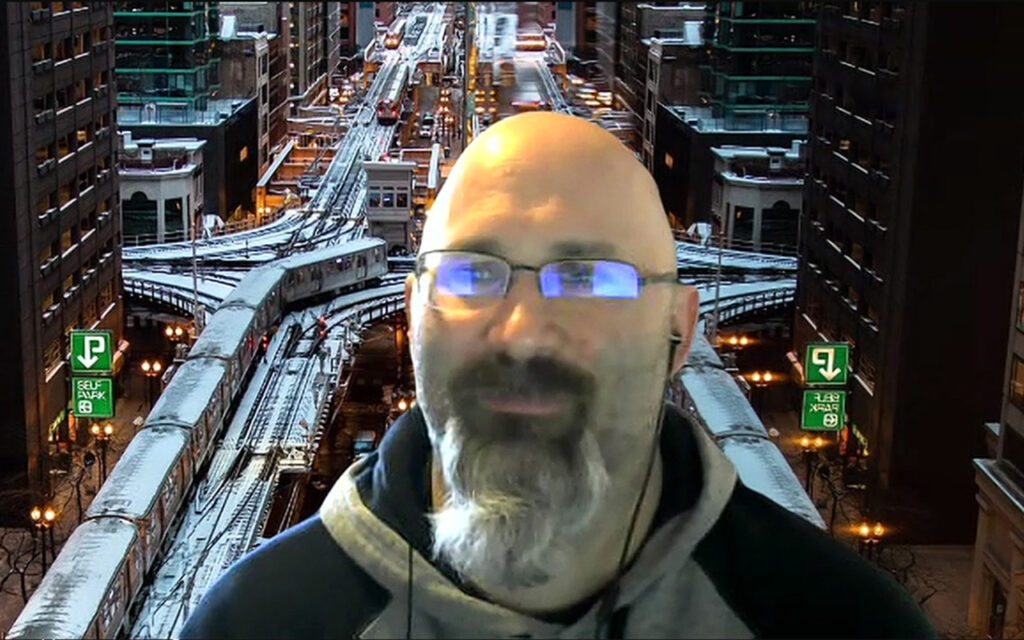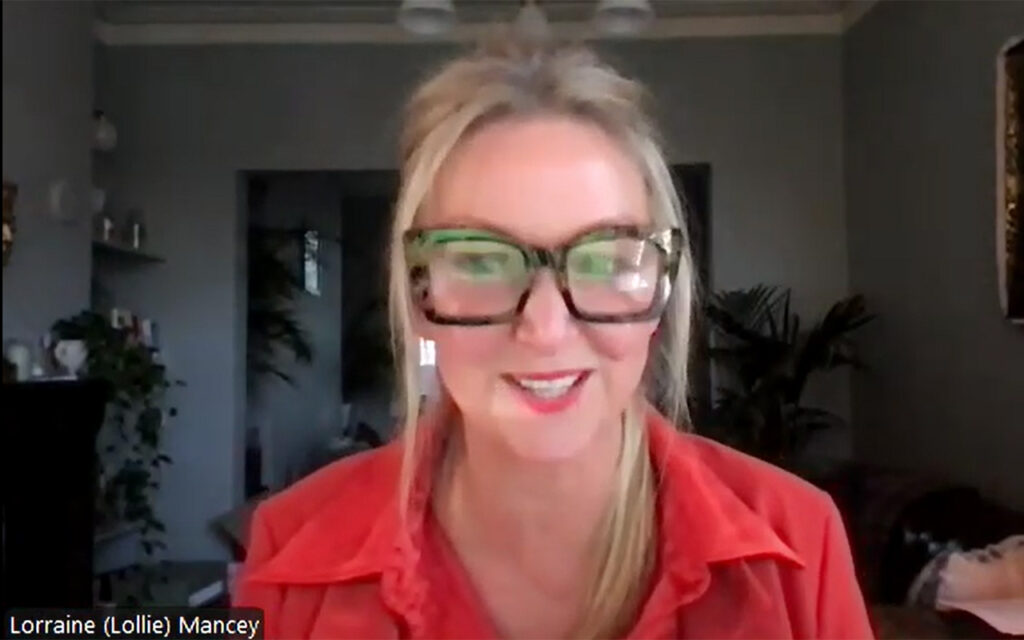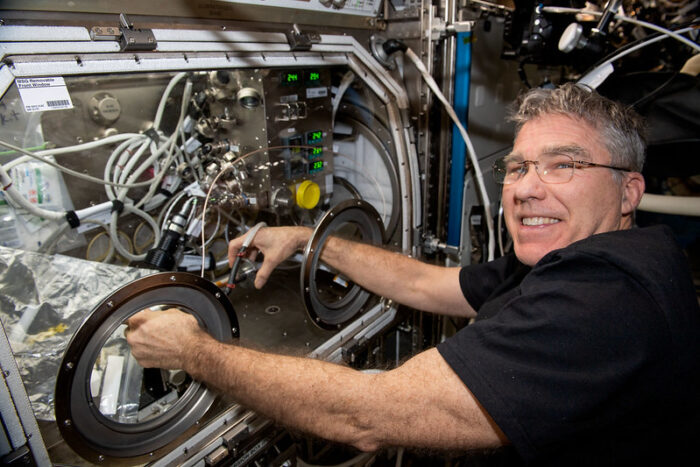Technology–personal and otherwise–that’s changing our future.
- VRAR Chicago: New Frontiers March 31, 2025

“The point here is not to have a lot of people just talking about (VR),” comments VRAR Chicago Founder Matthew Wren, of the upcoming Chicago XR Summit.
“…We want them to come into the space, put the headsets on and actually try this.”
VRAR Chicago’s XR Summit, happening on June 4th at Illinois Institute of Technology and virtually, in Frame VR, will be unique in several ways.
Breaking new ground, hands-on
Unlike many other technology-related events, admission to Chicago XR Summit is free to attend. (However, attendees MUST have tickets; here’s the link to sign up.) The focus: the applications of virtual reality in various industries–including education, design and workforce development.
In addition, no speakers will be featured. Attendees get to explore exhibitors’ innovations in immersive technology through hands-on demonstrations.
Also, Matthew says, exhibitors will not be charged for exhibiting their products and services! While they’ll pay a deposit to reserve the space, that deposit will be returned after their appearance at the Chicago XR Summit.
And last–but absolutely not least–Matthew and his team are exploring a new way for virtual attendees to experience the Chicago XR Summit!
“We are experimenting with technology that, frankly, I haven’t seen anyone do before,” Matthew says.
The overall goal: to educate and involve Chicago industries–and individuals–in the uses of immersive technology in day-to-day life in the workplace, education and creative disciplines.
A mission of exploration
VRAR Chicago, which Matthew founded in 2017, supports individuals and organizations in implementing virtual and immersive technologies into their products and services. For the past eight years, they’ve hosted their free hybrid monthly event series, The Next Evolution, where attendees explore the ways new immersive technologies can become valuable tools in their industries and future employment opportunities.
In other words, they’re showing people the ways immersive technologies’ capabilities extend far beyond the “gaming” applications with which many people associate them.
And Chicago XR Summit supports this goal by introducing attendees to some of the uses of immersive technology which they may never have imagined.
Matthew shared the story of creating VRAR Chicago, talked about some of the exhibitors during last year’s Chicago XR Summit, and offered some guidelines for successful virtual events.
And, be sure to reserve your tickets for Chicago XR Summit. Matthew warns that this is going to sell out!
On this issue of Over Coffee® we cover:
- How Matthew was first introduced to virtual reality and augmented reality;
- How he came to create VRAR Chicago;
- How The Next Evolution events led to the creation of Chicago XR Summit;
- What’s going to be happening at the Chicago XR Summit;
- Some of the exhibitors who participated in last year’s event;
- How the virtual-attendee element might work, as a new innovation this year;
- How new users might get started creating virtual spaces;
- Some of the recent innovations in immersive technologies which Matthew finds most exciting;
- A look behind the scenes, at the preparations for June 4th;
- How to help support these all-volunteer events;
- “do’s” and “don’t’s” of creating successful virtual events;
- How Matt and his team plan for “backups”, in case anything goes wrong technically;
- The partnerships with which they’re working;
- What he considers most fun, in his work on Chicago XR Summit;
- Where he’d most like to grow VRAR Chicago, in the future
- A Human-Centered Future March 24, 2025

Can we work in tandem with AI to craft a future world in which we’ll want to live?
Futurist, AI ethicist. anthropologist and educator Dr. Lollie Mancey says we can–and must.
The infusion of artificial intelligence, into all sectors, is inevitable, she continues.
“We can’t just shut our eyes to it and say, ‘it’s not going to happen. It’s already happened,” she says.
“And actually there are some amazing, incredible benefits, as well as some not-so-good things, coming.”
A proactive approach
As Programme Director at University College Dublin’s Innovation Academy, Dr. Mancey’s expertise is based on her experience in multiple areas.
In addition to her background in anthropology, she is an entrepreneur who has. so far, founded and directed three businesses. She is a broadcaster, whose most recent work included co-hosting RTE’s “Futureville Ireland” and her radio show on Dublin South FM. Dr. Mancey also hosts a podcast, “An Entrepreneur Like You”, on Spotify.
An award-winning storyteller and keynote speaker, Dr. Mancey likes to challenge her listeners to explore new ideas–and specifically, to imagine the ways they can have “a place at the table” as artificial intelligence evolves into all aspects and industries of the future. Her research and exploration of the challenges of AI focuses on the ethics of its use, for a human-centered approach to a rapidly-changing world.
Dr. Mancey talked about her background, some of her research in AI and the directions she recommends everyone take, to stay proactive and collaborative with artificial intelligence in education and the future workplace.
On this edition of Over Coffee® we cover:
- The learning journey that led to her current career;
- Some of the current factors that could have a negative effect as AI permeates all sectors;
- Ways to prepare for the future workplace, to give everyone a voice amid the spread of AI;
- Some of the benefits of AI for the educational sector and future workplace;
- One of her favorite experience, learning from her students, in a collaborative, as opposed to traditional, “lecture” approach to learning;
- How arts-oriented people can stay “the human in the loop”;
- How educators could reach students who may not currently have access to technology;
- Some of Dr. Mancey’s favorite current resources;
- Some of the “fun tricks” she uses, in her own interactions with AI;
- One of her more surprising interactions, during her research, with her “AI companion”;
- An intriguing fact about the way we start our days and how those first actions of the day can affect our creativity!;
- How to get past “imposter syndrome” with AI;
- Where “robot rights” might come in, in the future.
- Leadership – in Space and on Earth March 17, 2025
This post and podcast are not, in any way, shape or form, affiliated with, nor endorsed by, NASA. We are NOT employed by NASA. We just think this is very cool stuff, during an exciting time to be alive!

(Photo courtesy of NASA Johnson Space Center.) In honor of NASA’s SpaceX Crew-10’s successful flight to the ISS, this week we’re reposting our 2024 interview with NASA Astronaut and retired U.S. Navy Captain Stephen G. Bowen.
As the world watches the activities of NASA’s SpaceX Crew-10 what is life like, aboard the International Space Station?
NASA Astronaut and retired U.S. Navy Captain Stephen G. Bowen can certainly answer that question.
Steve has flown four separate missions aboard the International Space Station. Most recently, he served as commander aboard NASA’s SpaceX Crew-6 mission to the ISS, in 2023. Over the course of his career, he has conducted 10 spacewalks. In all, he’s logged a cumulative total of 227 days in space.

(Photo courtesy of NASA Johnson Space Center.) Team lessons on leadership
And the best part of it, he says, is getting to work with his fellow astronauts towards the goals of each mission.
“There is no better feeling you’ll have in life, than achieving something or succeeding as a team,” he says.
In fact, those achievements included rebuilding parts of the ISS!
Steve says that his first three flights on the International Space Station included bringing up the galley for the U.S. side, a module for the Russian side and a new stowage module for equipment.
In addition, Steve and his crew members were involved in some very exciting research projects, from around the world, that could have some exciting implications for medical science in the future.
“What we learn on orbit really informs how we understand the world,” he explains.
In this interview, recorded in early 2024, Steve talked about his background, offered a look at life aboard the International Space Station and explained some of the ways astronauts’ work in space can improve life on Earth.
On this edition of Over Coffee® we cover:
- Steve’s recollections of his growing-up years, which led to his becoming a submarine officer, and ultimately an astronaut;
- What it’s like to launch to the ISS;
- What the realities are, of serving as commander of a NASA spaceflight (as opposed to the way this role is portrayed in movies and television);
- One of the best leadership lessons Steve has learned, both from working aboard the ISS and from his fourteen years in the Submarine Force;
- What living aboard the ISS was like for Steve, in quarters he had helped to rebuild previously;
- One fun, playful experience the crew had aboard the International Space Station!;
- A closer look at the research experiments in which Steve and the crew were engaged aboard the ISS;
- What some of this work could mean to the medical profession, in the future;
- What’s involved, when guest vehicles arrive at, and depart from, the International Space Station;
- One of his favorite ways in which he was able to use his creativity as a problem solver in space;
- One “not-according-to-script” moment he and his fellow astronauts had to troubleshoot during a spacewalk;
- How astronauts deal with the motion sickness that can come with space travel (and with returning to gravity!);
- Resources Steve would recommend, and his advice to aspiring astronauts.
